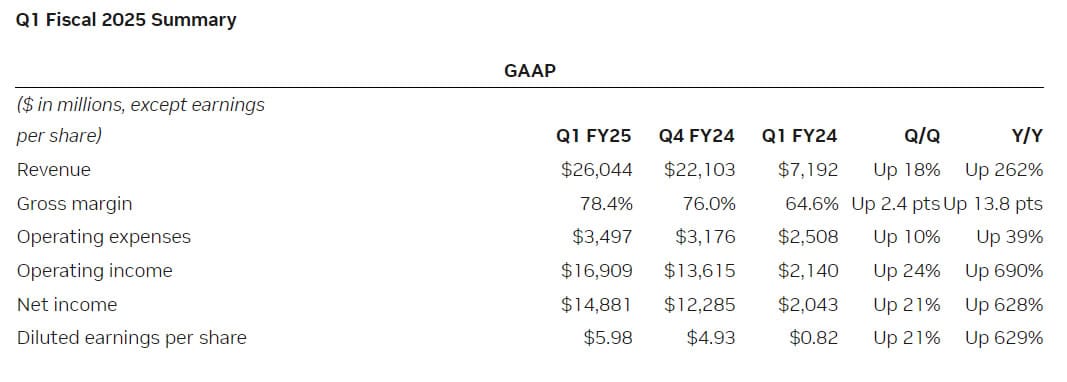Semiconductor giant Nvidia has further strengthened its commitment to the future of artificial intelligence (AI) after posting surprising quarterly results. With a market capitalization of an unprecedented $2.5 trillion, Nvidia has demonstrated the lucrative potential of AI technology in driving corporate success.
Record Financial Performance
Nvidia’s first-quarter earnings report, released on May 22, showed an 18% increase in revenue over the previous quarter and a 262% surge year-over-year, well above analyst forecasts of $24.6 billion. This impressive growth pushed Nvidia’s stock to an all-time high in after-hours trading, trading at just over $1,000 per share and pushing its market capitalization to more than $2.5 trillion.
Accelerating AI chip production
Key to Nvidia’s success is its rapidly growing data center revenue, reaching $22.6 billion, largely driven by growing demand for generative AI training solutions. NVIDIA founder and CEO Jensen Huang emphasized the transformative impact of AI, describing it as the cornerstone of the next industrial revolution, where data centers will evolve into AI factories.
Building on this momentum, Huang announced full-scale production of a new Blackwell platform designed for generative AI supercomputing at trillion-parameter scale. This marks a strategic shift for Nvidia, shifting the production cycle of its AI chips from a two-year cycle to an annual cycle. This announcement highlights Nvidia’s commitment to maintaining leadership in AI and continuing to innovate and adapt to the rapidly evolving technology environment.
Strategic Partnerships and Innovation
Further strengthening its AI strategy, Nvidia has expanded collaborations with major cloud service providers such as Amazon Web Services (AWS), Google Cloud, Microsoft, and Oracle. These partnerships aim to advance generative AI innovation across multiple platforms.
In addition to enterprise-level advancements, Nvidia also unveiled new AI-based technologies for gaming. Innovations like Nvidia ACE and Neural Graphics are set to revolutionize the gaming experience and make games more immersive through advanced AI integration. However, gaming revenue decreased slightly by 8% compared to the previous quarter.

Future Directions and Industry Impact
Going forward, Nvidia remains committed to pushing the boundaries of AI technology in a variety of fields, including automotive, robotics, healthcare, and semiconductor manufacturing. This broad approach promises to not only strengthen Nvidia’s dominant position in the market, but also foster further growth and innovation in this important industry.

